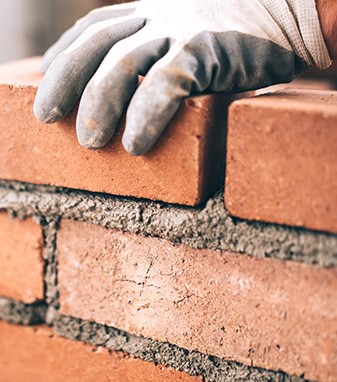As featured in Project Scotland.
The Westminster Government published the Building Safety Bill on 5 July 2021. The aim of the Bill is stated in a Government press release as “an extensive overhaul to building safety legislation, giving residents more power to hold builders and developers to account and toughening sanctions against those who threaten their safety”. The Bill introduces a new Building Safety Regulator which has responsibility for overseeing the new safety regime in respect of new and existing high-rise residential properties of 18m (6 storeys) or higher by ensuring safety considerations are maintained at key strategic points in the design, construction and completion phases of a development. The Building Regulator will have the power to take enforcement action where necessary against developers who do not adhere to the necessary safety standards and considerations. However, the headline which has been picked up in the media following the announcement of the Bill is that “residents” will be entitled to bring a claim for substandard construction work for a period of 15 years (up from the current period of 6 years), which will apply retrospectively if the Bill is enacted into statute. This is seen, in particular, as a method to help those affected by the cladding scandal following the Grenfell Tower tragedy. A significant number of flatted properties have effectively been rendered worthless as a result of similar cladding being installed, and the absence of other fire safety mechanisms.
The Bill extends to England and Wales, and it is not clear at present whether the Scottish Government will follow a similar approach in respect of building safety in general, or cladding and other such issues in particular. If it does, then it is important to be aware that the proposals as stated in the Bill are not a “quick fix”, and that there are a number of other factors that will impact any potential claim against a developer, which are not addressed in the provisions of the Bill as it stands.
Firstly, the extension of the period in which to bring a claim (the “prescriptive period”, which is 5 years in Scots law, compared to the 6 years in England) will, for the vast majority of such claims, be in delict rather than a contractual right against the developer as, unless the flat owner bought directly from the developer and obtained some form of guarantee, or obtained a “collateral warranty” agreement from the developer, there will be no direct contractual right of action against the developer. The Bill does not create any new right of action against the developer and so the particular complexities of bringing a claim in delict (where a claim must prove all of conduct, wrongfulness, fault, causation and damage in order to succeed) will continue to apply in the majority of claims. We are, at least, fortunate in Scotland that flats are not generally sold on leasehold tenure as they are in England and Wales, which adds another layer of complexity to such claims where the interests of the freeholder also come into play. There is no simplification of the procedure for bringing such a claim, and so flat owners will be burdened with the same legal costs in bringing a claim as they are at present, which may be beyond the means of the average individual.
Secondly, even if the period for bring a claim is extended to 15 years, and applies retrospectively, then the earliest such a claim can be backdated to (assuming the Bill is passed this year) would be 2006. Even if the claim is sufficient to succeed in law, there is no guarantee that the developer will have the resources to pay such a claim. It is likely that developers may not have the required level of professional indemnity insurance cover in place to pay such a backdated claim – development contracts rarely, if ever, require such cover to be maintained for 15 years due to the existing prescriptive periods. Even where the prescriptive period is extended by contract, in our experience it is rarely (if ever) extended beyond 12 years. Developers may struggle to obtain retrospective cover on reasonable terms or at reasonable cost.
Worse still, 15 years is a long time in the property (and, by extension, the construction) market. 15 years ago, we were yet to experience the global financial crisis of 2008 which decimated the property and construction sectors. We are yet to see an end to the coronavirus pandemic which has had a huge effect on the sectors. It is quite conceivable that developers on projects 15 years ago could have been liquidated since, meaning that even if a claim against them would hypothetically be successful, there will be nobody to actually pursue for the damage. The Bill does not provide a financial pot for dealing with any such claims, and so the flat owner cannot be made any better off, and will be left with few other means of recovering any costs they may necessarily incur in putting right the defective works.
While the Bill may be seen as a good start in addressing the issue of building safety in England and Wales, it will likely not be as effective as may be first thought in allowing affected homeowners to successfully claim for issues such as Grenfell-type cladding. It remains to be seen if, and if so how, the remaining issues are dealt with during the Bill’s passage through Parliament. If the Government is genuinely committed to securing remedies for affected homeowners, then there is certainly room for improvement.
To receive regular updates like this one, you can sign up to our bulletins by clicking here and we will provide updates on the issues that matter to you.

